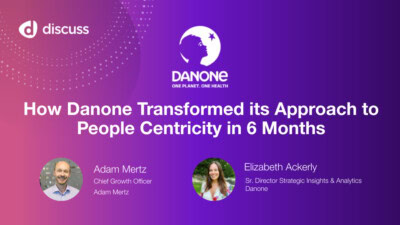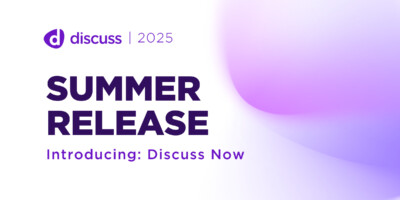Online Ethnography Challenges and Best Practices

Ethnography is a method of studying consumer behavior and attitudes by observing and interacting with people in their natural environments. This approach is used to gain a deep understanding of the consumer experience and identify patterns, insights, and factors that influence the entire consumer lifecycle. Ethnography can be incredibly useful for understanding how people make purchase decisions and even use a product or service. It can also help identify unmet needs or pain points that consumers may not be able to articulate in surveys or other traditional research methods. The findings of ethnographic studies can inform product design, marketing strategies and other customer-centric business decisions.
Market researchers have turned to conducting online ethnography to gain a deeper understanding of target audiences. This usually involves observing online communities, forums, and social media platforms. However, these methods have their limitations when it comes to creating a complete picture.
Challenges to Using Online Forums for Online Ethnography
While conducting online ethnography can be incredibly useful, it can also be difficult to scale. Here are some of the most common challenges that come with using online forums and social media for research:
- Authenticity: Online forum participation profiles aren’t always accurate, as people can use pseudonyms and create multiple accounts. This can create challenges in identifying who is involved in the community being studied.
- Bias: Community forums may not represent the audience of interest, and the opinions expressed may be biased or irrelevant. This can make it challenging to generalize findings from the specific community being studied.
- Data management: Collecting and managing large amounts of data from online ethnography can be burdensome. Researchers need to develop efficient systems for storing, organizing, and analyzing data to ensure that they can effectively identify patterns and insights.
- Ethics and privacy concerns: Online ethnography can raise ethical concerns related to privacy and informed consent. Researchers need to ensure that participants are fully informed about the nature of the study and their rights, and that they have consented to participate.
- Changing dynamics: Communities can evolve and change rapidly over time, with members leaving altogether, which poses challenges in conducting thorough and ongoing research into a particular audience.
- Access: Some community forums may be restricted, limiting your ability to study certain groups or communities. For example, a community Facebook group often requires you to answer several questions and confirm that you’re a member of that community before joining.
Best Practices for Online Ethnography
For effective online ethnographic research or longitudinal studies, follow these best practices to set yourself up for success. Here are our top recommendations:
- Identify key questions but remain flexible: Ethnographic research is a highly flexible and adaptable research methodology. It requires researchers to be open to unexpected findings and adjust their research questions and methods as needed. While you may enter the study with core questions—perhaps about purchasing behavior or product usage—keeping an open mind will reward you with deeper insights into your target audience.
- Choose the right tools: While online forums and social media may be easily accessible tools, they’re unlikely to provide enough depth for an effective ethnographic study. It’s essential to use a research tool that makes it easy for participants to self-report, analyze, and house the qualitative data. The Discuss People Experience Platform allows you to conduct in-depth qualitative studies at scale.
- Make self-reporting easy: Self-reporting can give you a deeper understanding of your audience. Discuss’ Self Captures feature makes it easy for participants to self-report through short-form videos. This feature enables unmoderated video surveys, diaries, mobile ethnography projects and more. (Get a free trial of Self Captures here.)
- Maintain confidentiality: Protect the privacy and confidentiality of your research participants. Anonymize data, use pseudonyms and obtain consent for any direct quotes or screenshots. At Discuss, we know how vital data privacy and security are to our customers, which is why our People Experience Platform is customizable and allows you to set the level of privacy you need.
- Analyze the findings: Deriving insights from online ethnographic research can be time-consuming and resource-intensive. But the Discuss People Experience Platform lets you quickly analyze the data and capture critical moments. Turning experiences into insights enables businesses to act on trends and fine-tune everything from marketing to the product or service itself.
Online ethnography provides a comprehensive understanding of your target audience, allowing for more effective marketing and product development strategies. With the right tools and preparation, this type of research can give you a powerful competitive advantage and help you develop a customer-centric approach.
Read our article, “Benefits of Online Ethnography,” to learn more about the benefits of this type of research.
Ready to unlock human-centric market insights?
Related Articles
Sorry, we couldn't find any posts. Please check back later.



